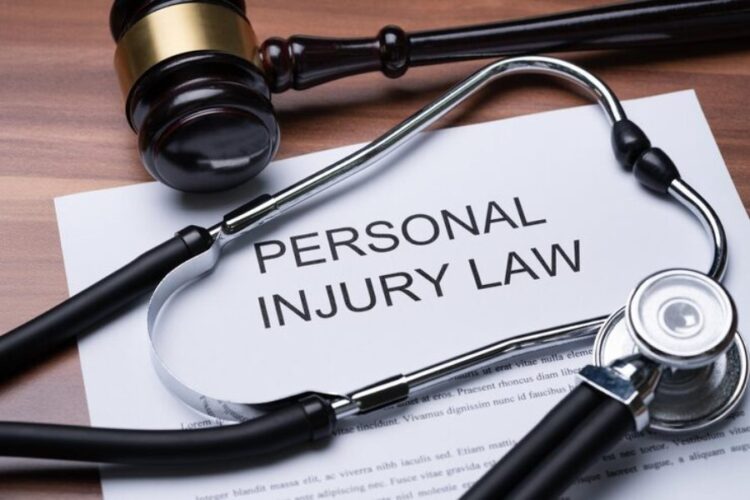If you’ve been hurt in an accident, deciding whether to settle or file a lawsuit can feel overwhelming. The choice you make could affect how much money you recover and how long the process takes.
This guide will help you understand the difference between settling and suing, and how to figure out what’s best for your injury claim.
Introduction to Personal Injury Lawsuits
Injury claims can come from many situations. These include car accidents, slip and fall cases, or even wrongful death. If someone else’s actions caused you harm, you may have the right to seek compensation.
A personal injury lawsuit helps you recover the losses caused by the accident. This can include medical bills, missed work, or emotional pain.
What You Can Recover in a Claim
Before you decide whether to settle or sue, it helps to know what types of damages you could collect.
There are three main types of compensation in personal injury cases. Economic damages cover things like medical expenses, lost wages, and property damage. Non-economic ones are harder to measure and deal with pain, suffering, and emotional stress. In rare situations, a court may also award something called punitive damages, which are meant to be a punishment for the person or company that caused the harm.
Each case is different. But the more proof you have of your losses, the stronger your injury claim will be.
Reasons You Might Choose to Settle
A fair settlement can get you paid quickly, avoid the stress and cost of a trial, and allow you to maintain more control over the outcome. It may be the right choice if the insurance company gives you a reasonable offer, your medical treatment is complete, and your costs are easy to calculate. But for many people, it’s hard to know what a fair offer really looks like, especially if this is their first time dealing with a serious accident. That’s why it often helps to speak with the best personal injury lawyer in Orlando or your area. Look for someone who knows how to review a claim and explain whether the offer matches what your case is actually worth based on similar cases in your city. Nevertheless, a settlement is also useful when you prefer not to deal with the delays of a legal battle.
If your injuries are straightforward and the offer covers your needs, there’s no harm in accepting and moving on.
Why You Might Choose to Sue
Sometimes, a settlement offer just isn’t enough. In those cases, going to court may be the better option.
Filing a lawsuit might make sense if the insurance company offers too little or denies responsibility altogether. You may also need to sue if you’re facing future medical care, or if your total losses go beyond what the insurance policy will cover.
Taking the case to court can sometimes result in a larger payout. It also shows the other side that you’re serious about getting fair treatment. Just know that this route can take time and involve more legal steps.
Deciding What’s Right for Your Case
This decision depends on several important factors that affect personal injury settlement value.
Start by looking at how severe your injuries are. If they’re minor and you’re healing well, a quick settlement might be enough. But if your condition is serious or expected to last, you may need more than what the insurance company is willing to offer.
Also, check your medical records. These are critical in showing how the injury is connected to the accident and how badly you were hurt. If your records clearly support your claim, you may be in a stronger position to push for more.
Next, consider the evidence. A police report, photos, or witness statements can back up your version of what happened. If fault is unclear or disputed, settling might be safer than risking a trial.
Finally, don’t forget the deadline. Each state has a statute of limitations, which sets the time limit for filing a personal injury lawsuit. If you’re close to the cutoff, you’ll need to act quickly to protect your right to sue.
Thinking through these points can help you figure out whether to settle now or take things further.
How the Legal Process Works
Understanding what happens during a claim can make the process less confusing.
Most cases begin with your attorney talking to the insurance company. This is called settlement negotiation. Your lawyer reviews your records, adds up your financial losses, and puts a value on your pain and suffering. Then they negotiate with the insurer to try to reach a fair agreement.
If the two sides can’t agree, your attorney may recommend filing a lawsuit. This starts with a formal complaint in court. From there, both sides enter discovery, which is when they exchange evidence and take statements. If the case still doesn’t settle, it goes to trial, where a judge or jury makes the final decision.
The court process can be long, but it might be worth it if your injuries are serious and your claim is strong.
Hiring a Personal Injury Attorney
No matter which path you choose, having a personal injury attorney on your side can make things easier.
A good lawyer helps with paperwork, keeps track of deadlines, speaks with the representative from the insurance company for you, and works to make sure you don’t accept less than your claim is worth. They also know how to handle tricky legal situations that could hurt your case if you’re on your own.
Many personal injury lawyers accept a contingency fee setup. This means that there’s no need for you to pay any amount upfront. You only give them the money if you win or settle your case, and their fee comes out of your final payout. That way, you can focus on healing instead of worrying about legal costs.
Conclusion
Deciding whether to settle or sue is a big step. A fair settlement can save time and help you move forward, especially if the offer covers your needs. But when the offer is too low, or your injuries are serious, going to court might be the right call.
Think about how your injuries affect your life. Review your records and your evidence. Keep an eye on legal deadlines. And if you’re in doubt, talk to a personal injury attorney who can guide you through the process and help you choose the best path forward.










